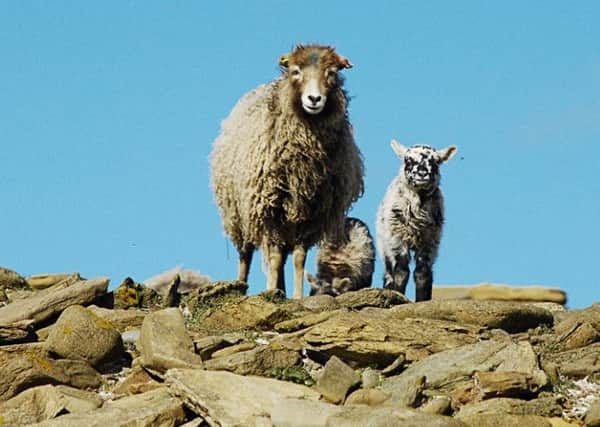Mission to save seaweed-eating sheep


The Orkney Sheep Foundation’s main mission is to raise and allocate funds to maintain an ancient sheep dyke which is an historic listed structure confining the unique breed to the shore by encircling the island.
The shoreline wall was substantially damaged by fierce storms and rip tides in the winter of 2012 and 2013 – the worst experienced on the islands for 40 years.
Advertisement
Hide AdAdvertisement
Hide AdThe dyke is regarded by Historic Scotland as ‘probably the largest drystone construction conceived of as a single entity in the world’.
It is just over 12 miles in length and, when originally built, stood some two metres high, enough to deter a jumping sheep – known as a ‘louper’.
The wall was completed in 1832 to confine the native sheep to the foreshore, and so protect the cultivated land and crops from their wanderings.
The dyke required regular attention and the island’s Sheep Court laid down procedures for sharing the responsibilities and tasks of maintaining the integrity of the wall.
This lasted well until severe storms caused damage, with several miles of the structure being laid low.
Its current state requires major reconstruction.
A spokesman for the sheep foundation said: “The community is working hard on regeneration and welcoming new islanders, and has pressed forward energetically with various developments for the future.
“Support for the repair and restoration of the sheep dyke will not only conserve a remarkable historic structure and an internationally significant breed.
“It will also ensure the survival of the traditional system of community flock management that has preserved sheep and dyke for so long.
“The dyke is the key to their survival in this very special habitat, and therefore our ultimate mission is to secure the future of the island flock on their native isle.”